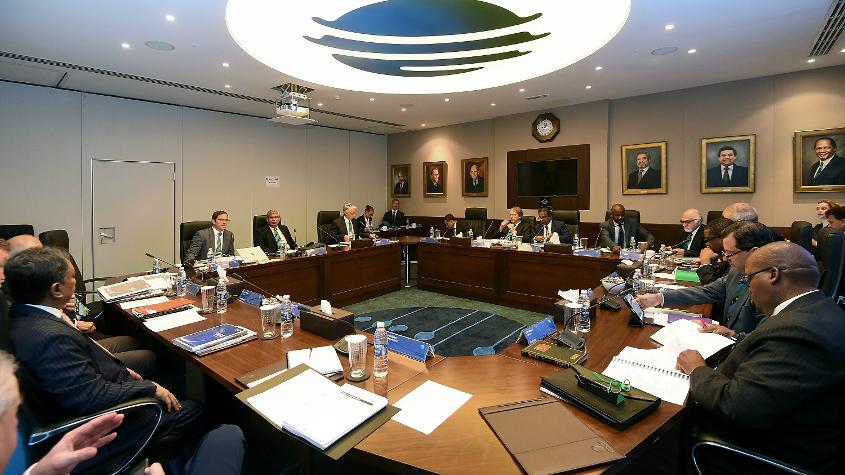28 Apr 2017 - {{hitsCtrl.values.hits}}

Even as India suffered a major blow after the ICC board voted down a ‘Big Three’ financial model proposed 2014 by the boards of India, England and Australia, Sri Lanka will see a substantial increase in revenue share under a revised financial model approved by the board. 
Picture credit: ICC
The ICC decided in February 2017 to reverse the 2014 resolutions that envisaged distributing a lion-share of ICC revenues among the big three boards. Based on current forecasted revenues and costs, therefore, Sri Lanka Cricket will receive US$132 million or Rs20.46 billion during the eight-year cycle from 2016-2023. This represents an increase of US$51 million (Rs7.9 billion) over the ‘Big Three’ model which gave it just US$81 million.
Under the new plan, seven of the Full Members, including Sri Lanka, will get US$132 million. India, who were negotiating for a lion-share equal to what was proposed in the ‘Big Three’ model, will receive US$293 million across the eight year cycle—down from US$570 million they had been anticipating under the earlier format.
The England and Wales Cricket Board will receive US$143 million, the second highest. Zimbabwe will get US$94 million. While this is a far cry from the equal share model adopted during the previous cycle, it is far better than what was proposed under the ‘Big Three’ model.
“Based on current forecasted revenues and costs, BCCI will receive US$293m across the eight year cycle, ECB US$143m, Zimbabwe Cricket US$94m and the remaining seven Full Members $132m each,” the ICC said in a statement, at the conclusion of the five-day board meeting in Dubai yesterday. “Associate Members will receive funding of US$280m.”
According to ICC, these changes were passed 13 to 1, with only India voting against. Separately, the ICC also approved a revised constitution by 12 votes to two, effectively limiting India, Australia and England’s control in administration and finances.
“This takes into account the Board’s feedback following extensive discussion at the February meeting and further input from the working group. It will now be presented to the ICC Full Council in June for adoption. The constitution reflects good governance, expands on and clarifies the roles and objectives of the ICC to provide leadership in international cricket,” the statement said.
Under the proposal, the ICC's constitution is to be extensively revised, with a number of changes to the way the global game is run.
This includes:
“Under the revised version that will be presented to the Annual Conference and in an effort to support existing Full Members, the potential for reclassification of Full Membership was removed. The Board acknowledged the need to sustain and grow the number of members competing at the top level,” the statement added.
“This is another step forward for world cricket and I look forward to concluding the work at the Annual Conference. I am confident we can provide a strong foundation for the sport to grow and improve globally in the future through the adoption of the revised financial model and governance structure,” ICC Chairman Shashank Manohar said in a statement.
15 Nov 2024 26 minute ago
15 Nov 2024 1 hours ago
15 Nov 2024 1 hours ago
15 Nov 2024 2 hours ago
15 Nov 2024 2 hours ago